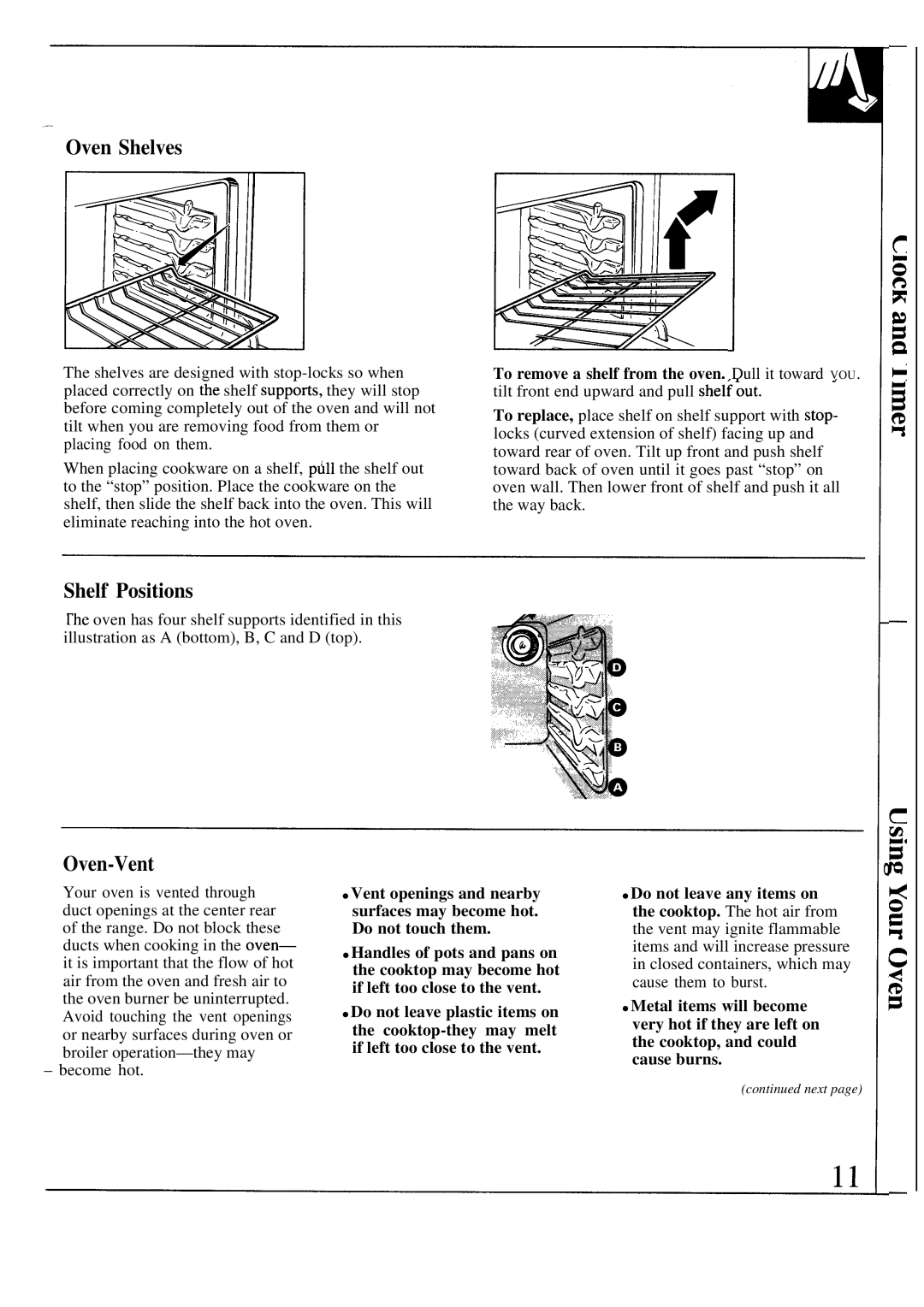
.—
Oven Shelves
The shelves are designed with
When placing cookware on a shelf, pill the shelf out to the “stop” position. Place the cookware on the shelf, then slide the shelf back into the oven. This will eliminate reaching into the hot oven.
To remove a shelf from the oven. Dull it toward VOUJ . tilt front end upward and pull shelf~ut.
To replace, place shelf on shelf support with stop- locks (curved extension of shelf) facing up and toward rear of oven. Tilt up front and push shelf toward back of oven until it goes past “stop” on oven wall. Then lower front of shelf and push it all the way back.
Shelf Positions
I’he oven has four shelf supports identified in this illustration as A (bottom), B, C and D (top).
Oven-Vent
Your oven is vented through duct openings at the center rear of the range. Do not block these ducts when cooking in the oven— it is important that the flow of hot air from the oven and fresh air to the oven burner be uninterrupted. Avoid touching the vent openings or nearby surfaces during oven or broiler
– become hot.
●Vent openings and nearby surfaces may become hot. Do not touch them.
●Handles of pots and pans on the cooktop may become hot if left too close to the vent.
●Do not leave plastic items on the
●Do not leave any items on the cooktop. The hot air from the vent may ignite flammable items and will increase pressure in closed containers, which may cause them to burst.
●Metal items will become very hot if they are left on the cooktop, and could cause burns.
(continued next page)
